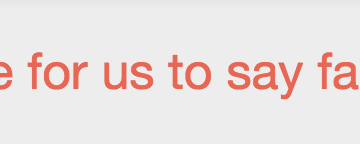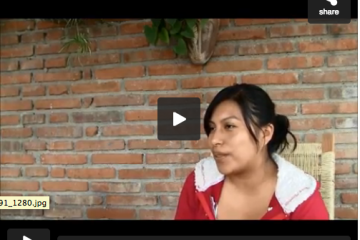The technology that’s making us irrelevant…and more relevant

happy birthday, Musicuentos
Whew, I’ve been blogging a long time. My blogging birthday passed unnoticed but Musicuentos turned SIX on the first of this month!
A lot has changed in six years. My teaching scaled back. My blogging scaled up. A kid came… and another… and another.
Whenever people talk about all that’s changed, the conversation inevitably turns to technology. Look at where it’s brought us. Facebook. Twitter. Prezi. Flickr. Drive. Schoology. Glogster. All the ones popping up every day that I don’t have time to try: Kahoot. Kaizena. Lucidpress. Videolicious. Duolingo. Even Instagram. And every language teacher’s favorite tool to hate: Google Translate.
Google Translate stinks… right?
Ever since I started blogging, and #langchat started, and as I went to conferences, and as I got more involved in Twitter, I’ve seen them and you’ve seen them – post after post, tweet after tweet, videos on YouTube, of how bad Google Translate is. How inaccurate. How unhelpful.
There’s just one problem, and we’re not talking about it, because we’re afraid. We’re afraid we’re wrong. And we are. Because somewhere along the line, somehow, Google Translate got good. Like, really good. Like, you-can-use-it-to-communicate good.
Let me show you what I mean, if you understand Spanish. Here’s that first paragraph in this section, translated to Spanish by Google translate:
Desde que empecé a bloguear, y #langchat empecé, y cuando fui a conferencias, y como me fui involucrando más en Twitter, los he visto y los he visto – puesto tras puesto, pío pío después, videos en YouTube , de lo mal que Google Translate es. Cómo inexacta. Cómo inútil.
Look at that. It’s not perfect, but it’s communicative, isn’t it? The words “post” and “tweet” don’t come across great but the rest of it, wow, it’s there. Check that idiomatic phrase: me fui involucrando más. Want to feel even more like we’re being made irrelevant by technology? Most videos and posts that joke about how “bad” Google Translate is do it by making fun of something run through Google Translate several times and then back into the original language.
Because you know, putting something from English into Chinese, then Macedonian, then Polish, then Creole, then Tamil, and then back into English is something people need to do.
But look what it did when I put that same paragraph back into English:
Since I started blogging, and #langchat started, and when I went to conferences, and as I was involving me on Twitter, I’ve seen and I’ve seen – post after post, tweet later, YouTube videos, how bad Google Translate is. How inaccurate. How useless.
Not bad, eh? Bottom line?
Google Translate got good.
don’t despair: why they still need us
I wonder if we’ve been so adamant that technology can’t teach language because we’re afraid of being out of a job. Language teachers are the world’s most outspoken critics of Rosetta Stone, but I’ll have to tell you, going through half a level of Rosetta Stone Russian gave me enough language skills that people on my travel team were asking me to translate (“What? You get that I DON’T ACTUALLY SPEAK RUSSIAN, right? I can order you a green chocolate bar. I CAN’T MAKE YOU AN APPOINTMENT.”) Honestly? The tech can teach them. People who want to learn can use technology to learn. And people who don’t want to learn can now use technology like Google Translate in more and better ways to speak for them.
So Sara-Elizabeth, what are you saying? The tech has replaced us? We really are getting tech-ed out of a job?
No, I’m not saying that at all. In fact, quite the opposite. Technology has made our job both easier and more necessary. I felt this was true, and then I caught this article via Twitter that expressed exactly what I mean. The title says it all: I need real people to help me learn a language.
Here are some of my favorite points from the article and I think you’ll see right away where I’m going with this:
I’ve found that my initial fondness for using the app – a sort of “hooray, shiny new toy!” enthusiasm – has waned.
It doesn’t really affect anyone whether I review old lessons or press on to new ones in the app. There’s no teacher to admonish me or (perhaps more importantly) peer group to keep up with.
Language learning, much like language itself, might be an inherently social pursuit.
Languages require speaking to other people, which is completely absent from how Duolingo works.
Without any real community of Mandarin learners to stay on pace with, I didn’t really feel motivated to practice before the next lesson.
I’m a little sceptical that any person can really learn a language without other people playing a part.
I feel this issue with Russian. When I came back from Russia in 2008, I decided I was going to be proficient in Russian by the Sochi 2014 Olympics. Not a huge feat, right? I had no kids. I had 6 years. I wanted to go to the games as an interpreter. I thought hey, with English, Russian, and Spanish, I’d have what, a third of the globe covered? Guess how much Russian I speak? Right. A whole lot less than I did in 2008. I can say horse, green, hi, and bye. That’s it. That’s what we call no measurable proficiency. Why? Same reason the guy who wrote the article gave: I had no community to give me a reason to learn it. Or to help me learn it. Sitting down at the computer to learn Russian didn’t do what language always ought to do: connect us with people.
I suppose I could use Google Translate to try to make friends in French on Facebook. I suppose I could put in what I want to say and copy and paste it into Twitter. I suppose if I had a smartphone I could even use it to order food in Chinese at a restaurant or tell the Japanese guy at the koi show which fish is my favorite and why. But somehow, in the act of running communication through a machine, even that connection with people loses its luster. It’s just not the same.
Insofar as technology connects language learners with language speakers, it’s invaluable, particularly for students who will not travel much. But even to do that, students need our help. Where is the community? How can I connect with them? How do I talk to them? And before they even ask those questions, go back to the original author of that article. Why did he need a teacher and people? Often they need us to help them find something that’s there but hiding: the key to it all, motivation.
That is why people who want or need to learn a language will always need people.
They will always need us.
8 Comments
Comments are closed.




This is what I’ve been trying to say! Trying to fight translators is like trying to fight calculators. Remember when our teachers told us we wouldn’t always have one on us? I know I do now. They definitely need us for community, but I think it also helps if we show them how to get the most out of a translator too (seriously, the pronunciation?? the PHRASEBOOK on Google Translate? Language learning dream come true.)
Believe it or not, I actually recommend that learners and their helpers use GT to help them learn to pronounce stuff!
I believe it! That’s what I had my kiddos doing for their individual vocab lists and soundboards!
So perfectly expressed. Thank you.
Although I would highly promote the use of technology and encourage independent learning (using the teacher “wisely”) I have come to realise that you do really need people to be around for the learning to be effective and, indeed, to be motivated to continue. Listening to webinars, trying to learn software by myself, among other things, although very convenient (and cheap!) gets boring and unproductive if you don’t get to share ideas with others.
Thanks for sharing these thoughts. It’s good to have this realistic perspective.
[…] Google Translate stinks… right?Ever since I started blogging, and #langchat started, and as I went to conferences, and as I got more involved in Twitter, I’ve seen them and you’ve seen them – post after post, tweet after tweet, videos on YouTube, of how bad Google Translate is. How inaccurate. How unhelpful. There’s just one problem, and we’re not talking about it, because we’re afraid. We’re afraid we’re wrong. And we are. Because somewhere along the line, somehow, Google Translate got good. Like, really good. Like, you-can-use-it-to-communicate ….. […]
[…] “But translators aren’t that good!” News flash – they’re not bad! Sara-Elizabeth blogged almost two years ago about how Google Translate has come a long way. And sure, you can […]
[…] English again… and then still sometimes they work. The truth is that even two years ago, Google Translate was so good that people had to either look very hard or run text through a dozen languages to get significant […]